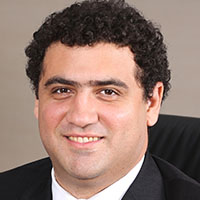-
Get the latest news! Subscribe to the ifa bulletin

In the wake of the royal commission final report there has been some industry debate around whether managed discretionary accounts present a conflict of interest for financial advisers.
In my opinion, determining whether or not MDAs present a conflict of interest for financial advisers requires an understanding of the structure of the advice business, the structure of the MDA and the relationship between the MDA and the advice provider.
You virtually cannot have an advice model without some form of potential conflict of interest, and this is not just in financial advice. In fact, most of the prominent public practice professions are highly vertically integrated, if you consider vertical integration to broadly be where the recommendations from the advice provider lead to more products and services being provided by that same advice provider or a related party.
The professions that the financial advice industry aspires to be counted among, such as accountancy, law and medicine, all have inherent conflicts of interest to some degree. Consider accountants who recommend complex structures generating significant upfront and ongoing fees such as trusts, companies and SMSFs; lawyers who perpetuate a culture of litigation and complex legal structures; and medical specialists who have the power to decide whether to perform surgery or some kind of non-surgical treatment that would generate little or no income for them.
MDAs and managed accounts (MA) are essentially legal structures to manage client money, like a managed fund. So, if they generate revenue through fees to the operator, and the operator is also the financial planner or the AFSL of the planner, then there is no doubt that there is the potential for a conflict of interest. But the argument is not as simple as that. We need to consider questions such as how much impact is there on the client’s outcomes in using the product or service that creates the potential conflict of interest? How much does the adviser actually benefit from the related product or service? What are the alternative solutions? Consider the following two scenarios:
Which is the more vertically integrated and potentially conflicted model? I suspect that most people would say scenario one. After all, it’s the most vertically integrated and conflicted, under our industry definition.
However, I would argue that the two options are equally conflicted. Under scenario two, the adviser is simply cutting out the specialist administrator and fund manager and earning revenue from the provision of these services to the client directly. In fact, you will probably find that the client is better off in scenario one because, even though the parties providing the administration and funds management services are related, they tend to be specialists in these areas, have robust infrastructure and are probably more experienced and better equipped to provide those services.
The potential conflict under scenario one is further mitigated if the adviser is a self-employed authorised representative with the licensee, who is also the product provider, where:
It is also worth mentioning the high degree of transparency that MDAs and MAs offer compared with other investment structures. So, assessing potential conflicts of interest, in my view, is about far more than just determining if there is vertical integration in a business or AFSL, or whether there are in-house products. You can create much bigger conflicts with far worse possible outcomes without vertical integration as our industry generally thinks of it.
You have a potential for conflict when the MDA operator and adviser are one and the same. However, you then need to analyse the individual situation to consider how serious the potential conflict of interest is, and this depends on the structure of the MDA.
If, as is often the case, the MDA generates little or no income in itself and is simply being used for the adviser as an efficient structure to offer portfolio management, then I would contend that the potential for conflict of interest is low and it is no more conflicted than the second scenario above.
Where the MDA is put forward as a product in itself and there are significant fees, and/or the MDA operator can make more money by recommending investments, such as in-house managed funds that generate more income and/or brokerage, then the potential for conflict of interest is definitely higher.
In terms of how important the use of the product or service is to the client outcome, I would contend that we tend to treat all potential conflict of interests as being the same. This, in my opinion, is a mistake. The choice of platform, for example, will have a much smaller impact on the client outcome than factors such as the choice of managed fund or insurance product.
MDAs have served many clients well and, when used appropriately, are one of the more useful risk mitigation tools available to advisers. Critics need to ensure they have the full picture and better understand how specific MDAs are priced, structured and used by advisers.
Eugene Ardino is chief executive of Lifespan Financial Planning

Adrian Flores is a deputy editor at Momentum Media, focusing mainly on banking, wealth management and financial services. He has also written for Public Accountant, Accountants Daily and The CEO Magazine.
You can contact him on [email protected].
Never miss the stories that impact the industry.